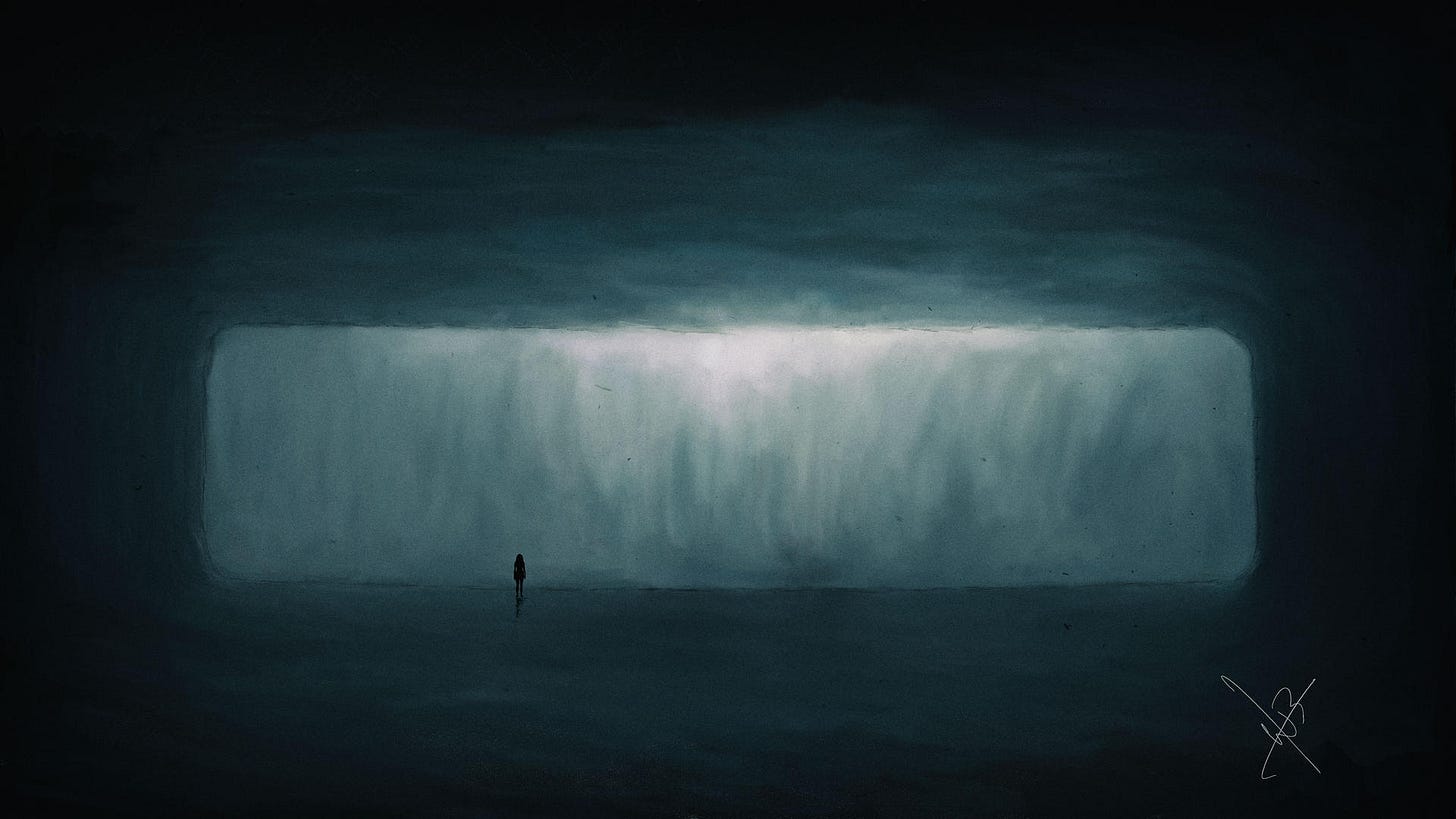Advent & Arrival
One of my favorite Advent films is Denis Villeneuve's 2016 sci-fi feature, Arrival. What makes an Advent film? For me, Advent is a time of anticipation, expectation, possibility, and hope. Maybe that’s me being redundant. Advent comes straight from the Latin advent — ad meaning “to” and vent meaning “come” or adventus meaning “arrival” itself. It’s a time of calling things forth from the darkness, of almost willing the future to arrive, as a prophet or an unstable John the Baptist might. It is also about time spent in darkness. Just sitting there. Waiting for a spark to catch. An Advent film need not be explicitly about Christmas or Christianity. Instead, it can encompass a broader range of narratives and themes that reflect the spirit of waiting, transformation, and darkness that are central to the Advent season.
Spoiler alert: there are a minor few spoilers below. The film is so good, however, that even if I spoil it, you can have a complete experience with it. It has stunning visuals and audio, great characters, and lands like a complete poetic experience. If you like Villeneuve’s other movies, you’ll be fine.
Angels (or Aliens) We Have Heard on High
Arrival is not just a story about alien contact; it's a profound exploration of communication, perception, and the human capacity for transformation. This narrative beautifully aligns with the principles of Controlled Burn, where embracing change and gaining new perspectives are central to personal and communal growth. In the film, this change is facilitated by two alien figures — cheekily named Abbott and Costello — who don’t appear like aliens in other movies. They are dark, mysterious figures whose language includes communicating in visions about the future to principle characters in the narrative. If this sounds remotely like the story of Mary and Joseph, you’re ahead of the game.

Arrival challenges its characters – and its audience – to reconsider the very nature of time and communication. The protagonist, Louise Banks, a linguist, embarks on an extraordinary journey of understanding an alien language. This process reshapes her perception of time, illustrating how learning and adapting can transform our entire worldview. In the context of Controlled Burn, this mirrors the process of letting go of old perspectives and embracing new ones to ignite growth and renewal.
Side note and spoiler: Arrival is partly a film about pregnancy, another symbol for Advent. It is time in darkness spent waiting for a light to come. For me, this possibility underlines and brings forth my Mary and Joseph reading of the film, but there are plenty of other allegorical associations that scratch that itch as well.
Embracing New Perspectives
Arrival teaches us the power of embracing new perspectives. Louise's journey shows that understanding a completely foreign way of thinking can have transformative effects on how we perceive our lives and our choices. Similarly, in Controlled Burn, we embrace the idea that new perspectives, especially those that challenge our conventional thinking, are essential for personal growth. They allow us to see beyond our current limitations and imagine new possibilities. Travel, shifting our physical space, and even rearranging and reorienting time and space — these are all ways we literally change our perspectives and begin the recovery and renewal process.
Humanizing the Alien
The aspect of Louise's pregnancy and her relationship with her daughter humanizes the film's science fiction narrative. It grounds the story in the deeply personal experience of motherhood. In this way, the film is incarnational both because it literally anticipates the incarnation of a child’s birth and because it puts the lofty story of aliens and UFOs into the lens of human characters. This might sound familiar, too.
Meditation
Sitting in darkness
Waiting
In our bodies
Not yet hopeful
Missing
Joyous strange listening
Reflection
Reflect on a time when a conversation or interaction significantly changed your understanding of a situation or person. How did this change your perspective?
Think about a crucial decision you've made. Do you see it as a choice you actively made, or as part of your destiny? How does this view shape your understanding of your life path?
Recall a moment in your life where joy and sorrow were closely linked. How has this interplay of emotions influenced your view of life's experiences?



